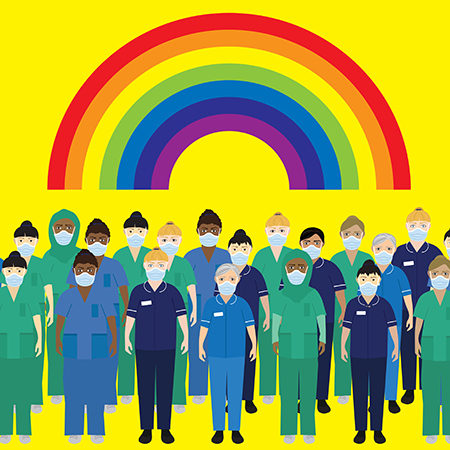The latest monthly combined performance data from NHS England and NHS Improvement reveals an increase of more than 100,000 people waiting for elective care since January 2021, bringing the figure to 4.7 million. Over 387,000 of those have been waiting for longer than a year.
That elective care waiting lists have increased as the NHS has responded to the challenges of the pandemic will come as no surprise to anyone. There are now calls for central support - including investment - to help the NHS to tackle this backlog, for realism, clarity and sensible timeframes over what can be achieved and for the welfare of staff - many of whom are exhausted and under considerable mental and physical stress - to be considered in all plans to reduce this waiting list.
Chief Executive of NHS Providers, Chris Hopson, told the BBC’s The World at One programme that the NHS is keen to address this backlog, but it needs help.
"It's very striking when I talk to Trust Chief Executives - particularly those who have served for a long time - they say it's beginning to feel like the early 2000s when there were far too many people on waiting lists, for years not months. This is true not just for planned operations and cancer care but also mental health and community services.
"The solution then was five successive years of real terms NHS funding increases of over 7% a year. That's double the amount that's currently being proposed for NHS funding this time round.
"We're clear in the NHS that we have a responsibility to get through this by doing all we can - by increasing capacity, growing our workforce, finding innovative ways of treating people, and increasing efficiency - but government needs to play its part as well."
David Maguire, Senior Analyst at The King’s Fund, cautions that the situation is likely to get worse before it gets better. “Even if the NHS meets its challenging targets to increase activity in hospitals, waiting times for care will continue to rise for many months to come,” he says.
“Long waiting times don’t just affect patients in need of hospital or cancer care. There are now growing concerns about access to community services that help to keep people healthy, and mental health services, especially those for children and young people.
“Getting the full range of NHS services back on track will take many years. The government needs to be honest with the public and start planning for a long-term NHS recovery. A good place to start would be with a fully funded workforce strategy to address the persistent staff shortages that have dogged the service for years.”
Simon Stevens, Chief Executive of NHS England, has already admitted that the mental health of NHS staff “is an area we are all very worried about.” The Nuffield Trust believes the record waiting list and major backlog of postponed care will set the NHS back years. Whilst it is clearly stressful for patients, the impact on staff must also be considered. Deputy Director of Research, Sarah Scobie, says: “Healthcare staff have made huge sacrifices during this pandemic, but more will be asked of them on the path to recovery. That is concerning when the latest NHS staff survey results in England show that more of them working in Covid-settings have suffered illness from work-related stress. Ensuring the wellbeing of staff must be an integral part of any credible long-term recovery plan.”
What the figures don’t say
In addition to the headline figures of 4.7m waiting for routine hospital care, Tim Gardner, Senior Policy Fellow at the Health Foundation, points to its recent analysis, ‘Longer waits, missing patients and catching up’, that suggests the true picture could be even worse. “As our recent analysis shows, this is in addition to up to six million "missing patients" who either didn’t seek care or couldn’t access services during the pandemic, many of whom will still need treatment of some kind. Without decisive action, the pandemic’s negative impact on health will continue to ripple through society for years to come.
“The government and NHS leaders now need to be clear and realistic with the public about how they intend to get the NHS back to full strength. This includes dealing with the backlog of care, achieving the ambitions to modernise the NHS as set out in the long term plan and anticipating the effects of long Covid and an expected rise in poor mental health. There will need to be significant investment at the next Spending Review if we are to see improvement on waiting lists and plugging staff shortages, which are holding back progress.”











